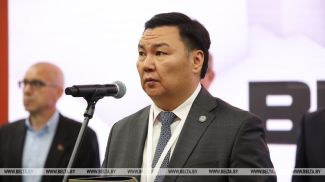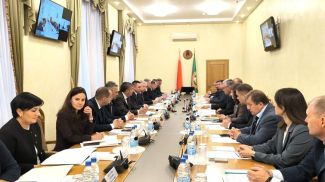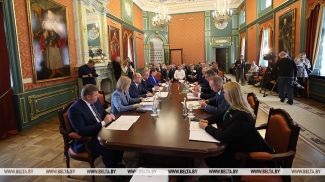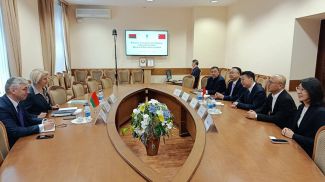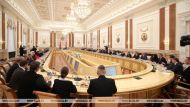MOSCOW, 4 February (BelTA) - The European Union has suffered from the introduction of anti-Russian sanctions more than Russia, Member of the Board (Minister) for Integration and Macroeconomics of the Eurasian Economic Commission Sergei Glazyev, said during an online press conference from Almaty on 4 February. A meeting of the Eurasian Intergovernmental Council featuring the EAEU heads of government will be held there on 5 February, BelTA has learned.
“Our heads of state [EAEU leaders], as you have repeatedly heard, criticize the use of sanctions in matters of trade and economic cooperation. These sanctions are used outside the law, in flagrant violation of the WTO and the IMF statute. The recent Davos forum showed that there is a broad international consensus in the business community and in most countries that sanctions should be abandoned. Sanctions do no one any good. I can say that anti-Russian sanctions have done even more damage to the European Union than they have to us, it is such a double-edged sword,” Sergei Glazyev said.
According to the EEC minister, five years of sanctions have stimulated Russia and its EAEU partners to make quite serious changes in the structure of foreign trade relations. “The trade with China has been growing fast. We see huge opportunities for cooperation with Southeast Asia. We have been developing free trade zones. They are already operating with Vietnam, Singapore. Negotiations are underway with India. We have almost implemented preferential trade regime with Iran,” he said.
“In fact, the United States initiated the sanctions, from which the European Union and our cooperation with the EU suffer. These problems, however, are well compensated by increasing cooperation in the East. The sanctions reinforce the structural changes that are now taking place in the global economy: its center is shifting from the West to the East. Today, the total volume of economic activity in Southeast Asia already exceeds the United States and the European Union combined both in the volume of production and in the volume of trade,” Sergei Glazyev said.
“I think the war of sanctions will inevitably end soon. We are ready to cooperate with all states. We have a full consensus here, we are against the use of sanctions, but as long as they are applied, we have to make plans based on the possible,” the EEC minister said.





